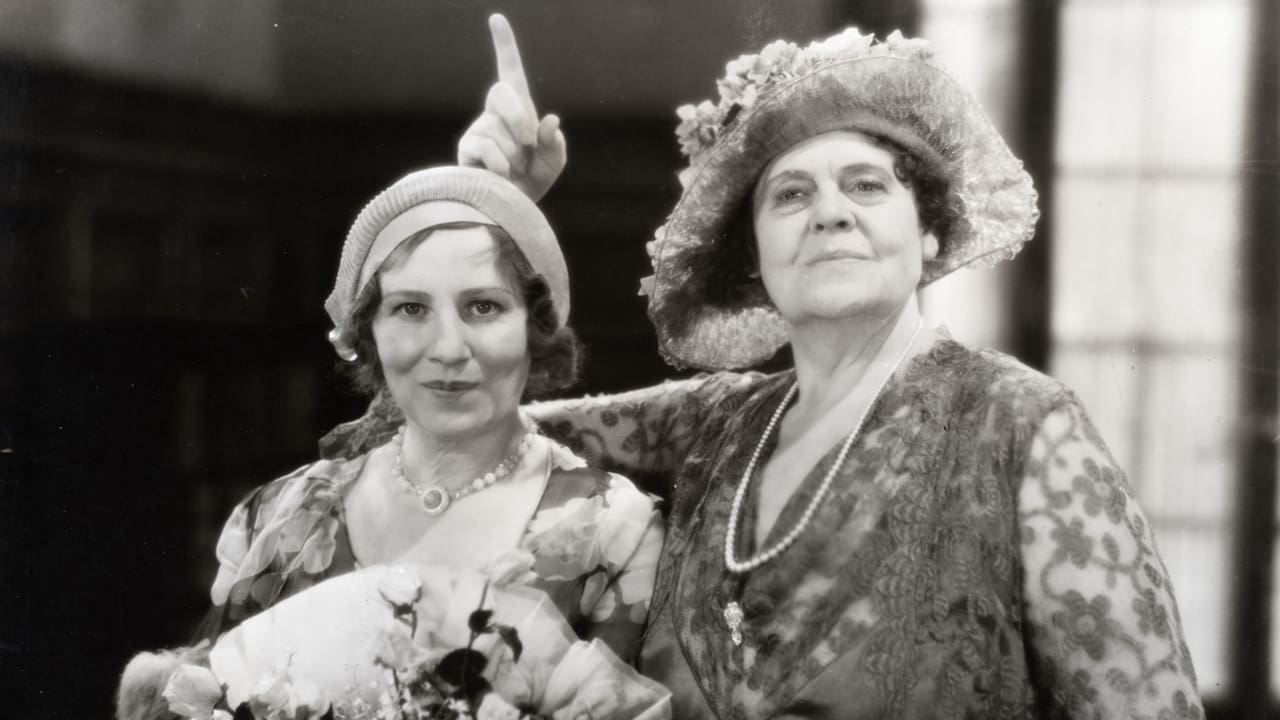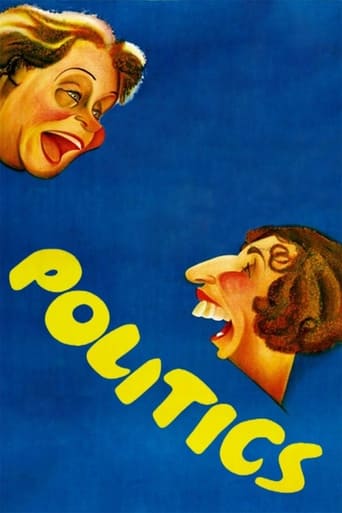

There was no one like Marie Dressler. She could make you laugh, cry and do just about everything. What a range in acting ability this woman had. Had she lived longer, she would have really conquered the heights.She is just wonderful in "Politics," where as a plain, ordinary woman, circumstances become such that she runs for mayor, thus challenging the idea of a woman as an elected official, and trying to fight the mob in Chicago of the 1930s.The beginning of the film is full comedy and Miss Dressler is ably supported in that regard by Polly Moran and Roscoe Ates, both of whom provide comedy relief. The film makes a sudden turn to drama when the innocent Daisy takes a bullet meant for another young hood, who is the boyfriend of Dressler's daughter, nicely played by Karen Morley.Yes, Happy Days are Here Again is played in this movie, and that was even before FDR's successful run in 1932.
... View More"This story is dedicated to women," according to the introduction, "who have been fighting for their rights ever since Adam and Eve started the loose-leaf system." When "Politics" was filmed, the Nineteenth Amendment, guaranteeing women the right to vote, was only a decade old. And, the film deals with the wielding of political power by women as a voting group. Advocating prohibition, and shutting down speakeasies, was a main concern for women at the time.Good-natured Marie Dressler (as Hattie Burns) becomes politically active, after a young woman is shot and killed coming out of a speakeasy. She wants the liquor-selling joints closed; and, is drafted into a Mayoral run, after delivering a powerful speech at a women's rally. Ms. Dressler is supported by her tenants, best friend Polly Moran (as Ivy Higgins) and her stuttering husband Roscoe Ates (as Peter Higgins). Dressler's run for Mayor of Lake City draws opposition from men in town; so, Dressler orders the women to go on strike, denying them, "everything" in the "parlor, bedroom, and bath." The film sounds much better than it turned out. The humor, frankly, isn't too good; and, it features some unfunny and moderately offensive situations ("You look like Madame Queen" refers to an Amos and Andy character). And, the mixing of shootings and slapstick doesn't mix well, this time. Producers might have considered making the film more dramatic, focusing exclusively on Dressler and the characters played by William Bakewell (as Benny Emerson) and Karen Morley (as Myrtle Burns).**** Politics (7/25/31) Charles Reisner ~ Marie Dressler, Polly Moran, Roscoe Ates
... View MoreWomen were still strongly represented in the guild of screen writers in the early thirties, and their influence shows in this proto-feminist comedy drama about a matron (Marie Dressler) who decides to clean up city hall by running for office in an effort to dispatch the corrupt incumbent (Tom McGuire). She coordinates her campaign with a housewives strike and snubs the local mafioso (John Miljan), who arrives at her home with a big bouquet of flowers. Though the film is mildly pro-Prohibition, its politics are clearly in the progressive LaFollette tradition, and modern day viewers will find it in turns refreshing and depressing. Some things never change! In addition to its enlightened screenplay, the film also looks terrific and was beautifully lensed by Clyde De Vinna, whose next film would be MGM's first swipe at Tarzan the Ape Man. Strongly recommended for all.
... View MoreThis sprightly programmer, starring Marie Dressler, transforms the story to modern politics ca. 1931. Dressler and the women are anxious to close the speakeasies -- this was made during Prohibition. There is a strong cast of women, including Polly Moran, Joan Marsh and Karen Morley. The men are played by supporting comics, including Roscoe Ates, on whose voice Porky Pig was modeled.Dressler was an interesting character. A big legitimate stage star, she was one of the leaders of the strike that formed Actor's Equity. By the late 1920s, she was washed up, until screenwriter Frances Marion wrote a role for her, and by 1931, she was MGM's biggest star. Her character was a fat, good-intentioned, foul-mouthed harridan, and she could tread the line between comedy and drama as surefootedly as anyone in the industry.Charles Reisner directs without much visual flair in this movie. He relies mostly on cuts to move the story along, moving the camera only slightly to maintain composition.POLITICS is pretty well dated, but it remains a fascinating film, if only for the performance of Miss Dressler.
... View More